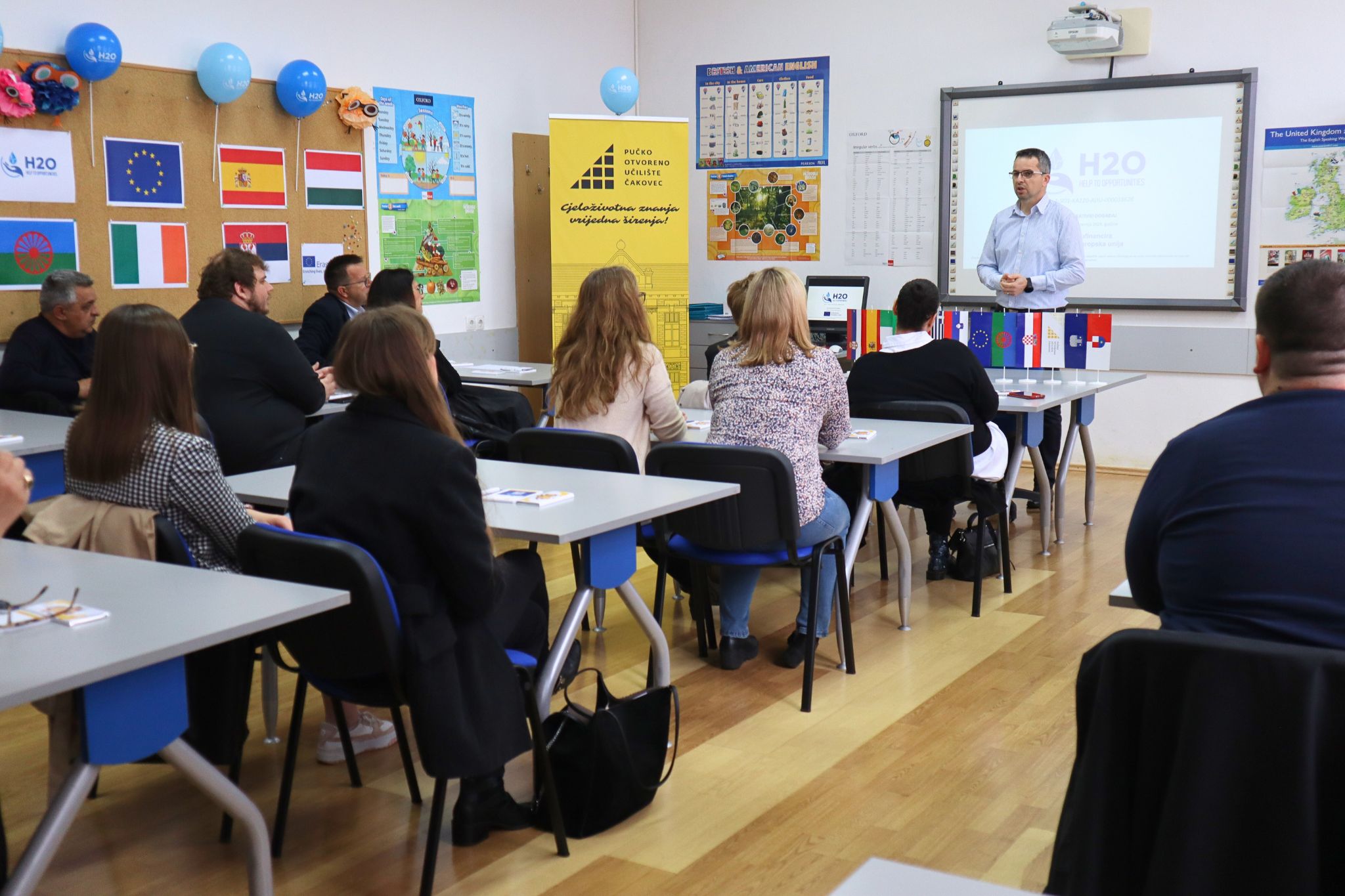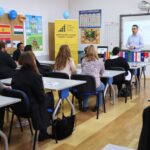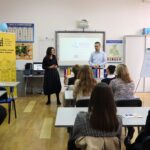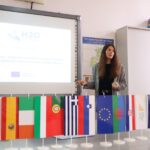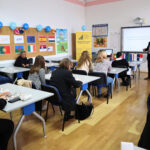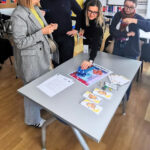On April 24, 2024, POU Čakovec hosted a multiplier event for the European project “Help to Opportunities” (acronym: H2O), implemented under the European Union’s Erasmus+ program. The project consortium comprises the lead partner Ljudska univerza Lendava (Slovenia) and partners Pučko otvoreno učilište Čakovec (Croatia), Previform (Portugal), Irish Creative Training and Innovative Development Center (Ireland), Inercia Digital (Spain), Amrita OBK (Hungary), Educational Cultural Community “Romanipen” (Serbia), Development Center Murska Sobota (Slovenia), and the University of Thessaly (Greece).
The H2O project focuses on the Roma population, aiming to raise health literacy levels. With a total budget of €345,468.00 the project implementation period is 30 months.
The multiplier event presented the project, consortium, activities, and results. In his opening speech, Mario Zamuda, the principal of POU Čakovec, highlighted the institution’s successful implementation of several Roma-themed projects, contributing to the Roma national community through lifelong learning, resources, manuals, curricula, and workshops. Čakovec Mayoress Ljerka Cividini expressed support for the project, praising the University’s role as the first lifelong learning center in Međimurje County and its international dimension through successful European project realization.
Andrea Štefić, the Erasmus+ coordinator at Čakovec Public Open University, introduced the Erasmus+ program and the University’s previous Roma-themed projects. Ivica Jeđud, a project associate, detailed the H2O project, its partners, and five main activities: primary and secondary research on the Roma situation, health, and literacy needs; training Roma lay educators; developing an educational program and resources; creating a project website and mobile app; and designing a social educational game.
The resources created within the H2O project are available freely and openly in 8 European languages at https://www.h2oerasmus.eu/.
Professor Goran Lapat from the University of Zagreb’s Faculty of Teacher Education discussed the importance of functional literacy for Roma health literacy, emphasizing education as a key to change and the inherent connection between functional and health literacy.
Representatives from Međimurje County, the City of Čakovec, employment and social welfare offices, the University of Zagreb’s Teacher Faculty Čakovec branch, the UZOR Roma Education Association, and local schools attended the event, expressing support, engaging in constructive discussions, and affirming the project results.

This publication [communication] reflects the views only of the author, and the Commission cannot be held responsible for any use which may be made of the information contained therein.

